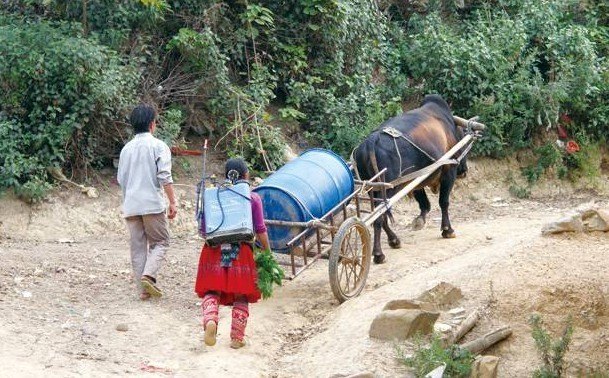(Ecns.cn)--Ma Toupo village with its 597 inhabitants is known as an "invisible" or "ghost" village and while it is known to lie only about 10 kilometers away from Kaiyuan, a county-level city in China's southwest Yunnan Province, even the most up-to-date map shows the location of the village as a waste land.
The people who live here are as real as others who live in nearby villages, but none has an ID card, or the residence permit known as a hukou, meaning they have no official existence in governmental records.
Such people are called the city's illegal or "black householders", or as "spontaneous migrates" in the official records. Although most of the villagers here can raise themselves, with no ID card or residence permit, life can never be as easy as that in the 'real' world outside.
All stemming from poverty
Born in 1949, orphaned Hou Zhiqiang was adopted, and moved with his father to live with his new aunt in Shidong village at the age of 10. At that time, "the country still remembered me," said Hou, "and I worked with people in the village and ate in the people's commune."
At the end of each year, Hou also received an allotment of corn that was distributed by the people's commune, although his was smaller than that of those whose residence permit was recorded in the village. Nevertheless, he stayed in Shidong until he married and had children, he recalls.
The corn and other food distributed by the people's commune was insufficient for the needs of Hou's family, and two of his children died of hunger on the same day in 1976; one was three years old and the other only three months.
In 1977, Kaiyuan city began a taking a census and many people who did not officially belong where they were living were forced out of their homes. Hou was one of them. Hou's family, together with nine others, began their lives of wandering. "All I had at that time were a pot and some bowls," said Hou.
They lived in Pingbian village for three years, and once again because of poverty and food scarcity, Hou's family had to move on. In 1980, they found Ma Toupo village and settled here where they remain today. Life was not easy at first, but later, more people like Hou moved to this 'waste land' until it turned into a small village.


















